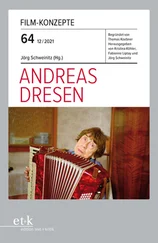Andrea Dworkin - Right-wing Women
Здесь есть возможность читать онлайн «Andrea Dworkin - Right-wing Women» весь текст электронной книги совершенно бесплатно (целиком полную версию без сокращений). В некоторых случаях можно слушать аудио, скачать через торрент в формате fb2 и присутствует краткое содержание. Жанр: Старинная литература, на английском языке. Описание произведения, (предисловие) а так же отзывы посетителей доступны на портале библиотеки ЛибКат.
- Название:Right-wing Women
- Автор:
- Жанр:
- Год:неизвестен
- ISBN:нет данных
- Рейтинг книги:4 / 5. Голосов: 2
-
Избранное:Добавить в избранное
- Отзывы:
-
Ваша оценка:
- 80
- 1
- 2
- 3
- 4
- 5
Right-wing Women: краткое содержание, описание и аннотация
Предлагаем к чтению аннотацию, описание, краткое содержание или предисловие (зависит от того, что написал сам автор книги «Right-wing Women»). Если вы не нашли необходимую информацию о книге — напишите в комментариях, мы постараемся отыскать её.
Right-wing Women — читать онлайн бесплатно полную книгу (весь текст) целиком
Ниже представлен текст книги, разбитый по страницам. Система сохранения места последней прочитанной страницы, позволяет с удобством читать онлайн бесплатно книгу «Right-wing Women», без необходимости каждый раз заново искать на чём Вы остановились. Поставьте закладку, и сможете в любой момент перейти на страницу, на которой закончили чтение.
Интервал:
Закладка:
where Lot bows down to them and offers them hospitality: safety
in his home, washing of the feet, unleavened bread:


But before they lay down, the men of the city, even the men
of Sodom, compassed the house round, both old and young,
all the people from every quarter:
And they called unto Lot, and said unto him, Where are the
men which came in to thee this night? bring them out unto us,
that we may know them.
And Lot went out at the door unto them, and shut the door
after him.
And said, I pray you, brethren, do not so wickedly.
Behold now, I have two daughters which have not known
man; let me, I pray you, bring them out unto you, and do ye
to them as is good in your eyes: only unto these men do nothing; for therefore came they under the shadow of my roof.
Genesis 19: 4 -8
The crowd, “both old and young, all the people from every quarter, ” attacked; the angels who appeared as men pulled Lot inside to save him, and “they smote the men that w ere at the door of the
house with blindness, both small and great: so that they wearied
themselves to find the door” (Genesis 19: 11). The angels told Lot
to leave Sodom because they were going to destroy it. Lot told his
sons-in-law, but they did not believe him. In the morning, the
angels told Lot to take his wife and two unmarried daughters; he
lingered, the angels transported Lot and the women outside the
city. God told Lot to go into the mountains and not to look back;
Lot pleaded to be able to go to a nearby city; God said he would
spare that city for Lot’s sake: “Then the Lord rained upon Sodom
and upon Gomorrah brimstone and fire from the Lord out of
heaven; and he overthrew those cities, and all the plain, and all the
inhabitants of the cities, and that which grew upon the ground”
(Genesis 19: 24-25). God remembered Lot, and spared him, and in
the wave of destruction of cities, God sent Lot into the mountains,
where Lot lived with his two daughters: “And the firstborn said
unto the younger, Our father is old, and there is not a man in the
earth to come in unto us after the manner of all the earth: Come,
let us make our father drink wine, and we will lie with him, that


we may preserve seed of our father” (Genesis 19: 31-32). On successive nights, each had sex with her drunken father and both became pregnant. Both had sons, a blessing, and each of those sons became the father of a whole people, a blessing.
That the people of Sodom meant the strangers harm is clear.
The nature of that harm is less clear. The demand of the mob to
bring the strangers out “that we may know them” is sexual because
the use of “know” usually is in biblical diction. The attempt of Lot
to substitute his virgin daughters for the men suggests that the mob
would have gang-raped the men. Whether the women in the mob
were voyeurs or purveyors of other forms of violence is impossible
to know: and yet the threat to the men does not seem to be only
sexual; it seems to include sexual assault by men, beating, maiming, and murder. The mixed mob indicates the breakdown of male class power in the same w ay that the assault on the male visitors
does: the rules that keep men exercising power as a class over
women as a sexually and socially subject group have broken down
absolutely; that is the destruction of the city. The destruction of
Sodom is certainly not for breaking a sexual prohibition on homosexuality. The daughters who get their father drunk to have intercourse with him and bear his children also break laws: yet they are blessed. The lesson is not that the inferred homosexual assault is
worse than the accomplished incest because one is homosexual and
the other is heterosexual. Laws against incest come first in Lcvit-
icus and are repeated or invoked in other parts of the Old Testament. The lesson is that when men are not safe from other men— a safety that can only be achieved by keeping women segregated and
for sex— the city w ill be wiped out. The daughters, in committing
incest, broke the law in order to perpetuate patriarchal power: as a
result of what they did, peoples, tribes, cities, were created. W hatever furthers male dominance, even when forbidden, will not destroy the city but build it. Sin, in the Old Testament, is first of all political. Law in the Old Testament is the regulation of society for
the purposes of power, not morality. The Old Testament is a


handbook on sexual politics: the rights of patriarchs and how to
uphold them.
David perhaps also breaks a sexual prohibition. His love for
Jonathan is indisputable, probably carnal, and goes beyond the
abomination of lying with mankind as with womankind: “I am distressed for thee, my brother Jonathan: very pleasant hast thou been unto me: thy love to me was wonderful, passing the love of
women” (II Samuel 1: 26). David makes this declaration of love on
learning of Jonathan’s death in battle. Jonathan’s father, Saul, also
died, and he is remembered in the most heterosexual of frameworks: “Ye daughters of Israel, weep over Saul, who clothed you in scarlet, with other delights, who put ornaments of gold upon
your apparel” (II Samuel 1: 24). The passage on Jonathan follows
the passage on Saul, so the contrast is very marked. And then there
was a lot more war and David became king and time passed; but
still, David’s concern was with Jonathan: “Is there yet any that is
left of the house of Saul, that I may shew him kindness for
Jonathan’s sake? ” (II Samuel 9 : 1). David found that Jonathan had a
son who was lame and serving another family. David restored all
Saul’s land to this son “for Jonathan thy father’s sake” (II Samuel
9: 7) and claimed Jonathan’s son as his own: “he shall eat at my
table, as one of the king’s sons” (II Samuel 9 : 11). There is no sin,
no condemnation, no wrath of God. Like the incest of Lot and his
daughters, this union made Israel stronger, not weaker. The homosexual bond extended the loyalty and protection of King David to Jonathan’s son, the grandson of Israel’s first king, Saul. David,
through his love of Jonathan, a love “passing the love of women, ”
having survived Jonathan, might be seen as Saul’s logical heir.
Hebrew society had become more complex than in the early tribal
days; Saul and David led armies; in a martial society, homosexuality is often seen to contribute to social cohesion among men. At least in this period, the Hebrews seem to have viewed it that way;
Читать дальшеИнтервал:
Закладка:
Похожие книги на «Right-wing Women»
Представляем Вашему вниманию похожие книги на «Right-wing Women» списком для выбора. Мы отобрали схожую по названию и смыслу литературу в надежде предоставить читателям больше вариантов отыскать новые, интересные, ещё непрочитанные произведения.
Обсуждение, отзывы о книге «Right-wing Women» и просто собственные мнения читателей. Оставьте ваши комментарии, напишите, что Вы думаете о произведении, его смысле или главных героях. Укажите что конкретно понравилось, а что нет, и почему Вы так считаете.












